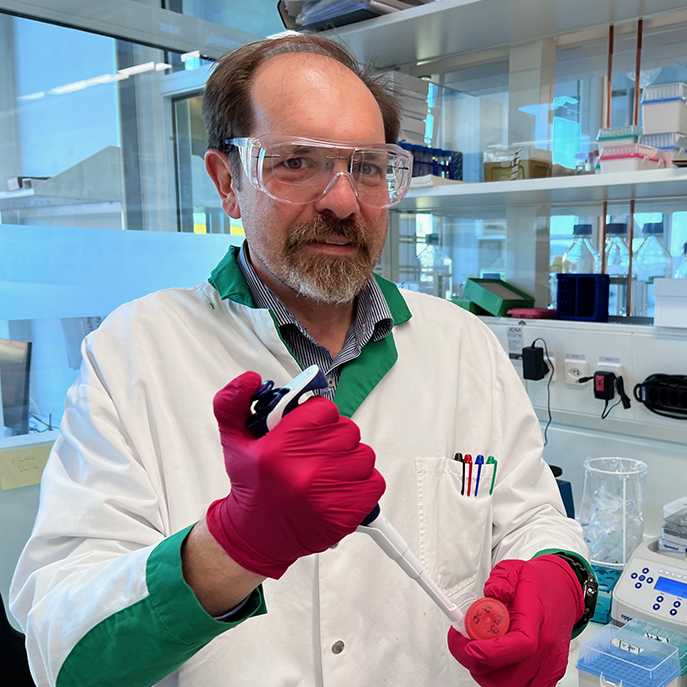SNF spark grants for unconventional research ideas
Two senior scientists receive rapid funding from the Swiss National Science Foundation for their novel and unconventional research ideas: Davide Eletto and Yingjun Liu. Their projects were selected for SNF spark grants in a double-blind reviewing process. Congratulations!

Davide Eletto, Senior researcher and lab manager in the Systems Physiology Group of Andreas Moor
In his project, Davide will shed light on the cellular stress response to viral infection. Many encapsulated viruses such as SARS-CoV-2 ‘highjack’ the host cells’ resources so that the cells start producing proteins and lipids that ensemble as the virus replicates. This virus replication is very stressful to the host cell, which is, at the same time kept alive to guarantee the virus’ progeny. The key question Davide tries to answer is: what is the mechanism of enveloped viruses in modulating the stress response of the infected host cells? He will focus on a specific stress sensor system in the membrane of the host cell, the so called inositol reactive enzyme 1 (IRE1). Viral infection of the cell activates this protein-complex only partially and leads to a molecular response, which differs to other forms of IRE1 activations. Davide aims to characterise the molecular processes triggered by activated IRE1 in the receptor protein itself and in the cellular biochemistry it kicks off. Against the backdrop of the recent COVID-19 pandemic, Davide anticipates that his findings may result in a totally novel therapeutic strategy against viruses similar to SARS-CoV-2.

Yingjun Liu, Postdoctoral researcher in the Biological Engineering Lab of Randall Platt
In neurodegenerative diseases such as Alzheimer’s disease, brain cells rapidly age and fade progressively, interrupting cell-to-cell communications and leading to memory loss. Studying how cells communicate with one another in a complex organ such as the brain is extremely challenging. To overcome this challenge, Yingjun proposed to develop CRISPHERE, a new method based on the in vivo genetic screening technology. By way of this method, Yingjun can study simultaneously how each gene in the entire genome affects specific cell-to-cell communications within tissues, both in normal and diseased states. One of the key questions Yingjun tries to answer with CRISPHERE is: which cell-to-cell communication processes cause, or contribute to, the formation of harmful protein clumps called amyloid-beta plaques in the brains of people with Alzheimer’s? Understanding cellular and molecular mechanisms behind the development of protein clumps and the alterations of cell-to-cell communications during disease pathogenesis could open doors for new and effective treatments.
Find information on the external page SNF Spark Grant.
Learn about research in the Systems Physiology Lab of Andreas Moor; and in the Biological Engineering Lab of Randall Platt.